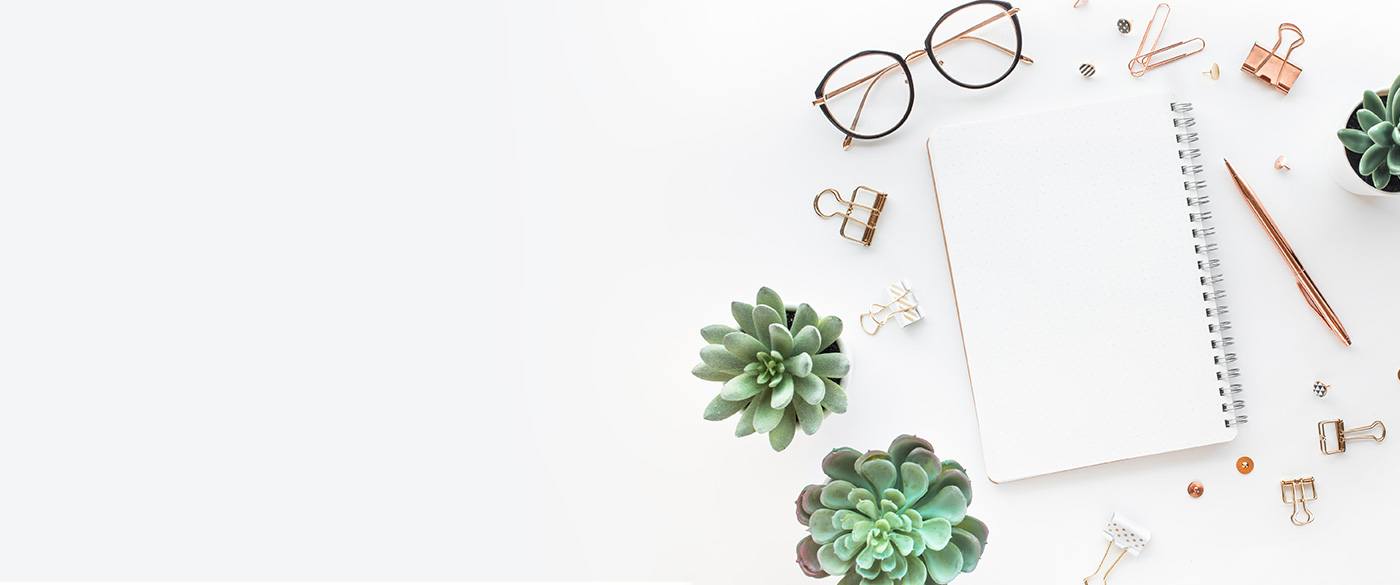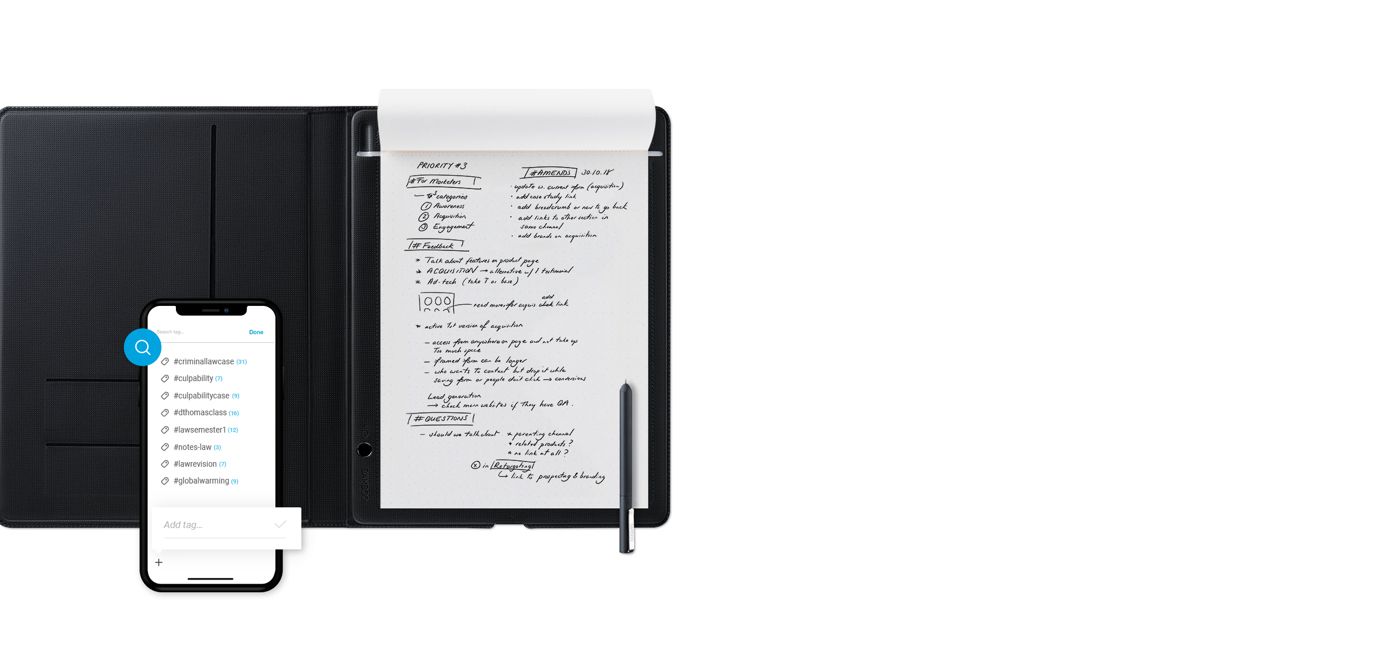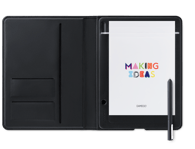Pen tablets
Esboza, dibuja y edita imágenes usando una tableta con gran capacidad de respuesta y un lápiz preciso, y observa cómo tus creaciones aparecen en pantalla.


Keeping a journal has been a rite of passage for teenagers for decades, not to mention a way to explore the past via the diaries of both well-known and long forgotten figures.
Today, the concept of a daily journal is enjoying a renaissance, with increasing evidence linking the practice with improving mental wellbeing, boosting productivity and acting as a gateway for getting creative. Whether you’re new to the practice or keen to hone your skills, these tips and strategies will help you get the most out of the time you spend with pen and paper and understand the benefits of journaling.

Starting a journal is simple. All you require is a notepad, pen and a few minutes of spare time. Journals don’t always have to involve writing lengthy entries and passages. In fact, psychologists advise starting small, writing down a few short sentences, from what you’ve done in the past 24 hours to three things you’re grateful for each day. From there, you can write longer pieces reflecting on what is happening in your life. Carving out the time to do so has been proven to boost mindfulness, allowing you to reflect on what’s happening and place events in perspective. There is also evidence to suggest that taking this time can boost self-discipline and productivity.

While a basic notepad and pen are great, the growing ability to save notes digitally means that it’s well worth investing in a smartpad and pen. Wacom’s Bamboo Slate and Bamboo Folio are a good place to start, allowing you to digitize your handwriting at the press button, saving work in the cloud or on your smart device using the Inkspace app. This will provide a handy back up your musings, as well as giving you the option to turn handwriting into text for easier reading.

Journals can come in many forms, with a growing number of techniques gaining popularity and giving the whole practice a new lease of life.
Chief among them is the Bullet Journal. This is a concept that utilizes short, single sentences and a series of symbols to identify tasks that need to be done, notes on things you need to remember and events that you have occurred since you last wrote in your diary. This process is aimed at clearing your mind of distractions, as well as blending traditional diary taking with everyday to-do lists, putting productivity to the forefront.
For those reticent about writing down their feelings, one sentence journals are a strong option. This is as easy as it sounds. At the end of each day, simply write down one sentence about what has happened and how you feel.
Pioneered in the early 1990s, Morning Pages has become a cornerstone of the journal writing scene. This technique requires journal writers to put down three pages of stream of consciousness shortly after they’ve woken up, the idea being that the brain is less constrained by intrusive thoughts at this time of day. Julia Cameron, who developed this concept, says that pushing yourself to write three pages will reveal breakthroughs and help you explore problems in a way that a few short sentences cannot.
The joy of keeping a journal means that it isn’t just about writing lines of text, though. Expressive writing can also involve sketches, doodles and symbols, all valid ways to show a creative approach and get feelings, thoughts and ideas onto the page.
Writing down goals might seem an unlikely way to see them come to fruition. But research has shown that by writing down what you hope to achieve, your brain flags that action as important. Doing this regularly in a journal will allow you to flesh out plans and develop strategies, something that is challenging if you simply try and remember them. This way you’ll have a journal to return to while you’re working on a new project or life goal, allowing you to reflect and consider what needs to happen next to turn a dream into reality.
Keeping a journal is a smart way to try and boost your ideas and develop a creative practice. Morning Pages has long been allied with the idea of diary-writing as a form of self-expression, with a seemingly mindless flow of words allowing you to tap into a deeper part of consciousness. This, in turn, can see ideas seemingly come from nowhere, whether it’s for a new business venture, a new-look personal website or a short story. The more you practice keeping a journal, the more likely ideas will flow, boosting your creativity in the process.

Writing a journal is a solid way to power up your memory and recall events years after they happened. Evidence shows that using handwriting and drawing can train the brain to remember things more easily compared with typing on a computer, allowing you to retain information and comprehend it at a later date. By simply writing something down, you’re helping to draw an idea or concept out of your brain, making it easier to understand. Keeping a regular journal, therefore, means you’ll remember more over the long term.

There’s a large body of evidence showing that keeping a journal can improve mental wellbeing. 2005 research by Cambridge University showed that those suffering with anxiety, depression or post-traumatic stress could ease the effects by writing down how they feel, thereby reducing stress. Researchers suggest that such writing should be conducted regularly and in a private space where intrusions are unlikely. Further research found journals to be helpful in Cognitive Behavioral Therapy too, a key tool for those struggling with their mental health.
As well as having tangible mental benefits, journaling has also been shown to have positive physical effects too. Researchers at the University of Arizona discovered that writing a journal lowers heart rate and helps develop better heart rate variability, a key sign of good health. There are even studies showing that a journal can strengthen immunity.

A journal isn’t just something to turn to when you’re feeling low, however. The evidence shows that keeping a journal is a vital part of daily self-care, helping with defenses against anxiety and depression. Therapists claim that writing one can help us gain perspective, therefore having a more objective and less subjectively critical view of our own lives. The mindful benefits of writing a journal are also clear. Being able to take yourself away from screens and devices for just a few minutes can help you become more present and less stressed. A 2012 paper for Berkeley Science Review found that a mindful journal writing practice could boost happiness.
Capture your thoughts naturally with Bamboo Ink. This smart stylus feels just like putting pen to paper. And it’s so simple to use. To jot down your notes, just tap on the Windows Ink Workspace icon or your favorite apps on the screen – no pairing needed.
Recommended Product

Bamboo Ink
Write and quickly note ideas on your mobile device with a Wacom stylus.
With Bamboo Folio, you’ll enjoy the feeling of putting pen to paper with all the convenience of a digital format. This smartpad instantly digitizes your handwritten notes and diagrams at the simple push of a button. You can also choose the paper you’d like to work on – squared, lined or even a napkin. Journaling has never been so easy.
Recommended Product

Bamboo Folio
Write with pen on paper and convert your handwritten notes to digital.

Esboza, dibuja y edita imágenes usando una tableta con gran capacidad de respuesta y un lápiz preciso, y observa cómo tus creaciones aparecen en pantalla.

Dibuja, diseña y crea directamente en una pantalla de alta resolución con un lápiz preciso.

Crea cualquier cosa en cualquier lugar con una mayor potencia informática, un lápiz preciso y una pantalla impresionante.


Escribe y anota rápidamente ideas en tu dispositivo móvil con un lápiz digital Wacom.
La estrategia de Wacom consiste en acercar la tecnología a las personas mediante su tecnología de interfaz que hace que la experiencia al usarlo se sienta natural. Esto ha convertido a Wacom en el fabricante líder a escala internacional de pen tablets y pantallas interactivas, así como de lápices digitales y soluciones para guardar y procesar firmas digitales. La tecnología avanzada de los dispositivos Wacom es Intuitiva y se ha utilizado en la creación de algunas de las películas, efectos especiales, moda, diseños y obras de arte digitales más interesantes del mundo, y ofrece a los usuarios domésticos y profesionales una tecnología de interfaz líder para expresar su propia personalidad. Fundada en 1983, Wacom es una compañía global con sede en Japón (bolsa de valores de Tokio: 6727), con filiales y sucursales en todo el mundo para cubrir operaciones de marketing y distribución en más de 150 países.